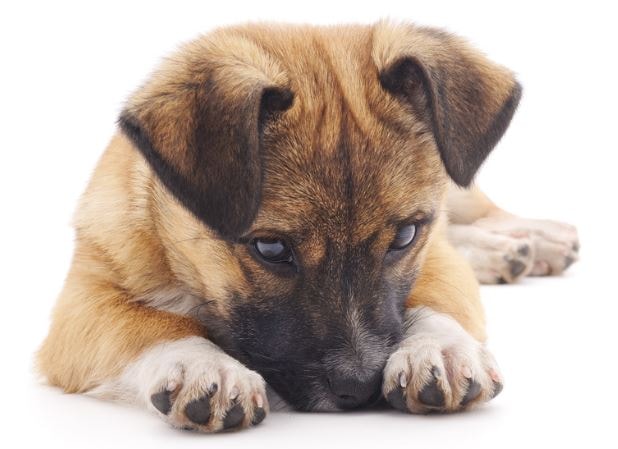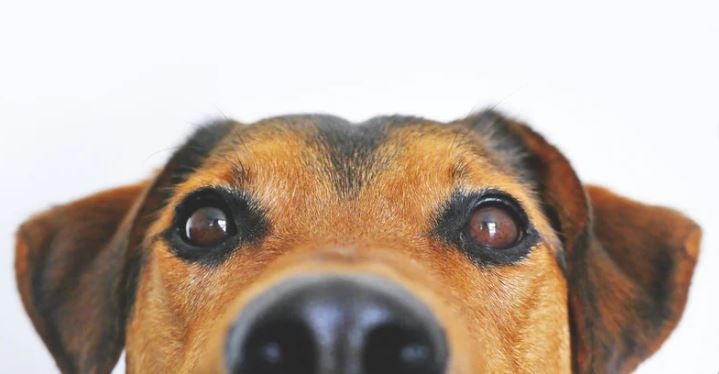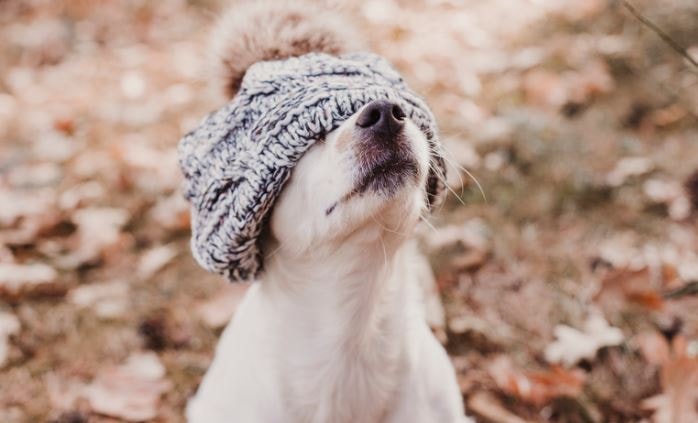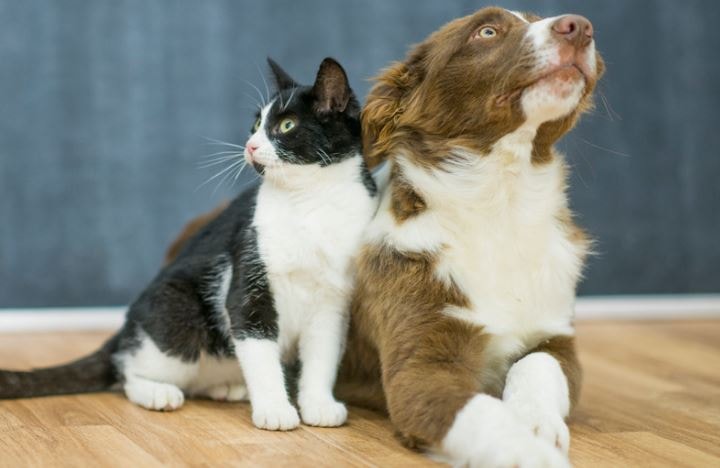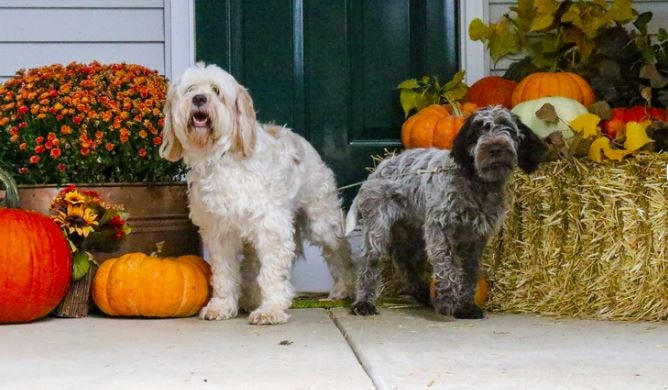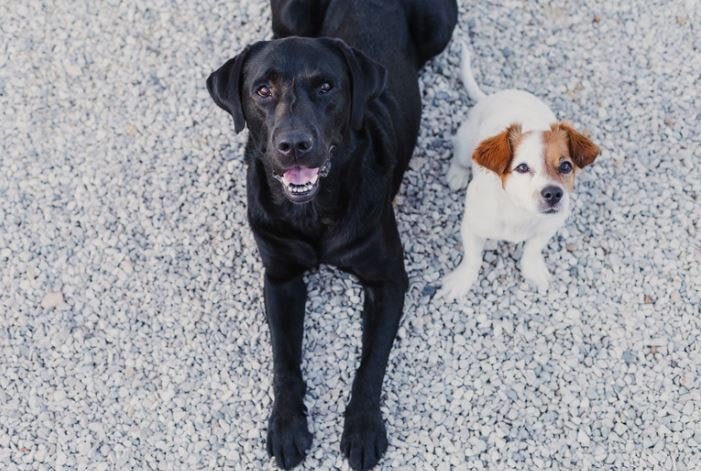So, you know how dogs are supposed to be these sweet, non-judgmental bundles of unconditional love? Yeah, about that. Lately, I’ve come to the unsettling realization that Snowey, my fluffy little Maltese, may have some… let’s call them “preferences” when it comes to people. Specifically, he has issues with certain strangers—and by “issues,” I mean full-on barking meltdowns that make me question my life choices.
I know, I know. Dogs can’t technically be racist, right? But try explaining that to Snowey as he growls, barks, and acts like an angry little marshmallow at specific passersby, especially darker skinned people. Now every walk feels less like a relaxing stroll and more like a PR crisis in the making.
Assessing the Situation
Before jumping to conclusions about your pet dog’s apparent racial discrimination, it’s crucial to take a step back and assess the situation. Ask yourself: Has my dog been exposed to people of different races and cultures? If Snowey’s only social circle consists of you, your family, and the occasional mailman, he might just be reacting to the unfamiliar.
Consider his history and training. Did he have a rough start in life? Maybe he missed out on those crucial puppy socialization classes. And let’s not forget the medical angle—sometimes, underlying health issues can make dogs more reactive. So, before labeling Snowey as a tiny, fluffy bigot, let’s dig a little deeper into his past and present circumstances.
Identifying Potential Issues
Alright, dog owners, let’s play detective. Identifying potential issues that could be contributing to Snowey’s behavior is like piecing together a puzzle. Here are some clues to consider:
-
Lack of Socialization: If Snowey hasn’t mingled with a diverse crowd, he might be wary of people who look different from his usual human caregivers.
-
Negative Experiences: A bad encounter with someone of a particular race could have left a lasting impression on him. Dogs have memories like elephants, after all.
-
Owner’s Behavior: Believe it or not, Snowey might be picking up on your vibes. If you tense up around certain people, he might think there’s a reason to be on high alert.
-
Environmental Factors: Living in a heightened racial environment or hearing negative language can influence a dog’s behavior. Snowey might just be a product of his surroundings.
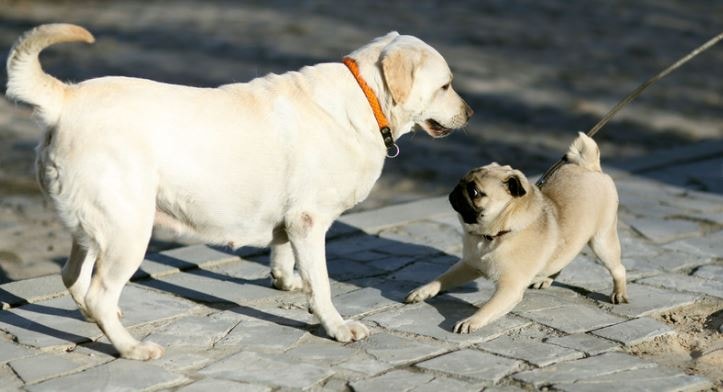
The Great Dog Barks Divide
First, let me just say: Snowey doesn’t bark at everyone. He’s selective—very selective. And therein lies the problem. Some people? He wags his tail, flops onto his back, and gives them the full “rub my belly, stranger” treatment. Others? They don’t even make it within five feet before he’s acting like they’re trespassing on his private property.
And here’s the kicker: Snowey’s “preferences” seem oddly… specific. Tall men? Nope. Delivery drivers? Not a chance. People with hats? They’re public enemy #1. And let’s just say, the dude at the corner store who tried to pet him one time has probably never fully recovered from the sheer volume of dog barks Snowey threw his way.
Me: Apologizing Constantly, Forever
The worst part of having a dog with “opinions” is the endless cycle of awkward apologies.
-
“He’s usually so friendly!” (He’s not.)
-
“I don’t know why he’s barking!” (I do, but it’s complicated.)
-
“He just needs to warm up to you!” (He absolutely does not plan on warming up to you.)
At this point, I’ve perfected the apologetic dog's owner smile. It’s that strained, uncomfortable grin that says, “I swear I’m not raising a little monster—he’s just… a work in progress.”
The Hat Problem
There’s something about
hats that really sets Snowey off. Maybe he thinks hats are a disguise. Or perhaps, in his tiny dog brain, anyone with a hat is automatically suspicious. Either way, I’ve learned to give wide berths to anyone wearing a
beanie, cap, or (heaven forbid) a hoodie.
The one time a family friend showed up in a fedora, Snowey exhibited such negative behaviors by barking so relentlessly that the poor guy ended up taking it off just to avoid another small dog-sized riot. I’m fairly certain Snowey thought he’d saved us all from imminent danger.
Is It a Dog Thing or a Dog Owners' Personality Problem?
I’ve tried telling myself, “It’s not personal; it’s just instinct.” Dogs, after all, are pack animals, and maybe Snowey is just… selectively cautious? But when the same few people keep triggering his inner attack mode while others get the VIP treatment, it’s hard not to wonder: Does my dog actually have a problem?
It doesn’t help that he gives me zero clues about what’s going on in his head. One minute, he’s acting like a grumpy old man shouting “Get off my lawn!” at a stranger, similar to how dogs react aggressively toward perceived threats like mail carriers or workmen, or even other dogs. The next minute, he’s snuggled into the lap of someone new, wagging his tail like he just found his long-lost soulmate.
Socialization and Training
Now, let’s talk solutions. Socialization and training are your best friends here. Start by exposing Snowey to people of different races and cultures from an early age. Think of it as expanding his social network—more friends, fewer freakouts.
Positive reinforcement is key. Reward Snowey for more positive behaviors when he stays calm around strangers. Treats, praise, and belly rubs can work wonders. Teach him basic commands like “sit” and “stay” to help him focus and stay calm. And remember, punishment is a no-go. Scolding him for reacting will only make things worse. Instead, focus on encouraging more positive behaviors.
What I’ve Tried (And Failed At) to Address Negative Behaviors
Naturally, I’ve made several valiant attempts to address Snowey’s “preferences.” As with many pet dogs, Snowey's behavior might reflect the implicit biases he picks up from his environment.
-
Positive reinforcement: Treats do nothing. He’d rather bark and then accept the treat as his reward for a job well done.
-
Distraction techniques: I tried tossing a toy to redirect his attention. He ignored the toy and barked even harder, just to prove he can multitask.
-
Training classes: Let’s just say the instructor’s exact words were, “This one’s got… a lot of personality.”
Creating a Positive Environment
Creating a positive environment is like setting the stage for Snowey’s success. Promote a culture of inclusivity and respect in your home. Avoid using racist language or making derogatory comments about people of different races. Snowey might not understand your words, but he can definitely pick up on your tone.
Encourage positive interactions between Snowey and people of different races. Invite friends over for a doggy playdate, and make sure Snowey feels safe and comfortable. A little patience and a lot of love can go a long way in helping him overcome his biases.
Managing Incidents
Finally, let’s talk about managing incidents. If Snowey has a meltdown in public, stay calm and composed. Panicking will only escalate the situation. Avoid punishing or scolding him—remember, he’s not doing this on purpose.
Try to identify the cause of his reaction. Is it a specific person, a particular race, or just a new situation? Address the root cause and work on desensitizing him to it. If the behavior persists, don’t hesitate to seek professional help from a dog trainer or behaviorist. Sometimes, a little expert advice can make all the difference.
By following these steps, dog owners can help prevent and address racial bias in their dogs, creating a more inclusive and respectful environment for everyone. And who knows? With a little effort, Snowey might just become the most open-minded Maltese on the block. 🐾
The Awkward Conversations About Dog Ownership
The toughest part is explaining to people why your adorable, fluffy Maltese is acting like an overzealous security guard.
-
“Does he hate men?” (Not all of them... just most of them.)
-
“Does he have a thing against uniforms?” (Yes, apparently.)
-
“Is he racist?” (I mean, I hope not—but the jury’s still out, and I don’t think he’s open to sensitivity training.)
I usually just laugh nervously and change the subject, praying that Snowey doesn’t make things worse by barking at someone else mid-conversation. Spoiler alert: He always does.
Learning to Embrace the Chaos
Look, at the end of the day, Snowey’s quirks are part of who he is. Yes, he’s selective about who he likes. Yes, he’s got some questionable instincts. And yes, there are days when I feel like I’m managing a tiny public relations disaster. But hey—nobody’s perfect, right?
Besides, there’s something oddly charming about a dog with strong opinions. Snowey may not win any "Most Friendly Dog" awards, but he sure knows how to keep things interesting. And deep down, I know that when it really matters—when it’s just us at home—he’s the sweetest, most loyal little fluffball I could ever ask for.
So, if you see us on the street and Snowey barks at you... I’m sorry. It’s not personal. He’s just a tiny diva with a lot of feelings and a deep distrust of hats.
But if you’re not wearing a hat, don’t be surprised if he suddenly loves you and acts like it’s been your friendship destiny all along. Because that’s just how he rolls. 🐾
